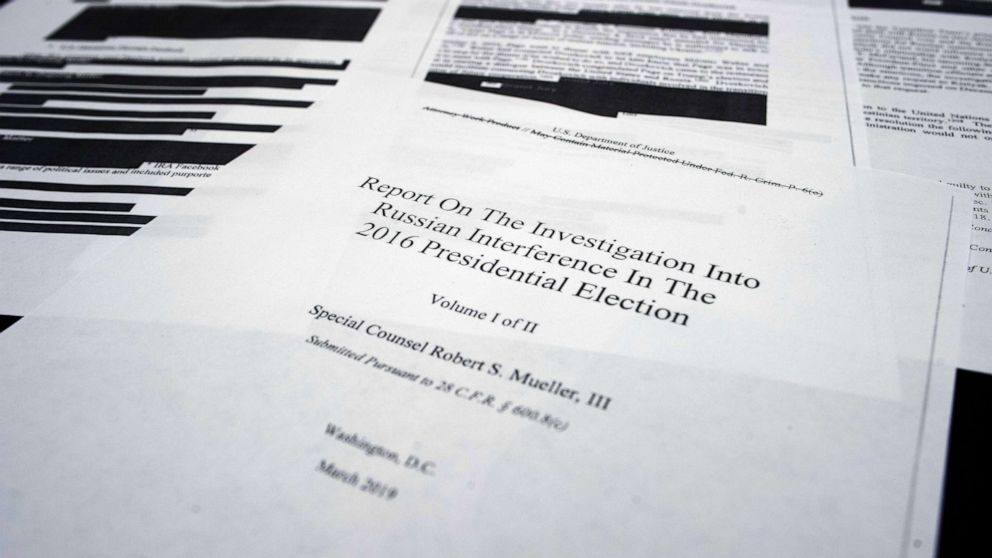'If they had an obstruction case, they would have made it': Trump lawyer Jay Sekulow
Providing a snapshot of how the White House is characterizing special counsel Robert Mueller's just-released report, the president’s personal attorney Jay Sekulow told ABC News’ Chief Anchor George Stephanopoulos on Thursday that the focus should be on the ways he said President Donald Trump was cleared — not on the evidence that the special counsel found but did not or could not determine to be illegal.
“The basis upon which this investigation began, which was the concern over Russian collusion with the Trump campaign or people in the Trump campaign, was answered very clearly — couldn't have been any clearer — and that is that there is, in fact, no collusion,” Sekulow said. “And they were emphatic about that,” he said, referring to Mueller's team of prosecutors.
Because of that, Sekulow said, there was no underlying crime that would lead to obstruction of justice. “[Trump] defended himself and defended himself exercising his First Amendment rights,” Sekulow said.

“Jay, I have to stop you there. You're right. That's the conclusion of William Barr," Stephanopoulos said, referring to the attorney general who held a news conference on the report hours earlier. That's not the conclusion of Robert Mueller,” Stephanopoulos cotninued, pushing Sekulow about the findings of the report that said, “If we had confidence after a thorough investigation of the facts that the president clearly did not commit obstruction of justice, we would so state.”
Sekulow, in his response, said the focus should be on the fact that no charges were brought.
“Hold it. If you don't conclude the individual that's the subject of the investigation has committed a crime, you don't bring a charge. Look, if they had an obstruction case they would have made it. They did not,” Sekulow said in the terse back-and-forth with Stephanopoulos.
The full section of Mueller’s report states:
“If we had confidence after a thorough investigation of the facts that the president clearly did not commit obstruction of justice, we would so state. Based on the facts and the applicable legal standards, however, we are unable to reach that judgment. The evidence we obtained about the president’s actions and intent presents difficult issues that prevent us from conclusively determining that no criminal conduct occurred. Accordingly, while this report does not conclude that the president committed a crime, it also does not exonerate him.”
Sekulow also reacted to sections of Mueller's report that found that former campaign manager Paul Manafort and his then-deputy Rick Gates said they expected the president's personal counsel were going to "take care" of them, seemingly referring to pardons.
"The thing is, there were no pardons given," Sekulow said. "But, by the way, just to be clear, this whole discussion about pardons -- it's not as if the president doesn't have a pardon power. That's plenary in the Constitution of the United States. He didn't exercise it. It wasn't on the table, he didn't exercise it. But you can never take that authority away."
A large part of Trump's defense, Sekulow agreed, was that the president was continuously acting within his powers under the Constitution.




